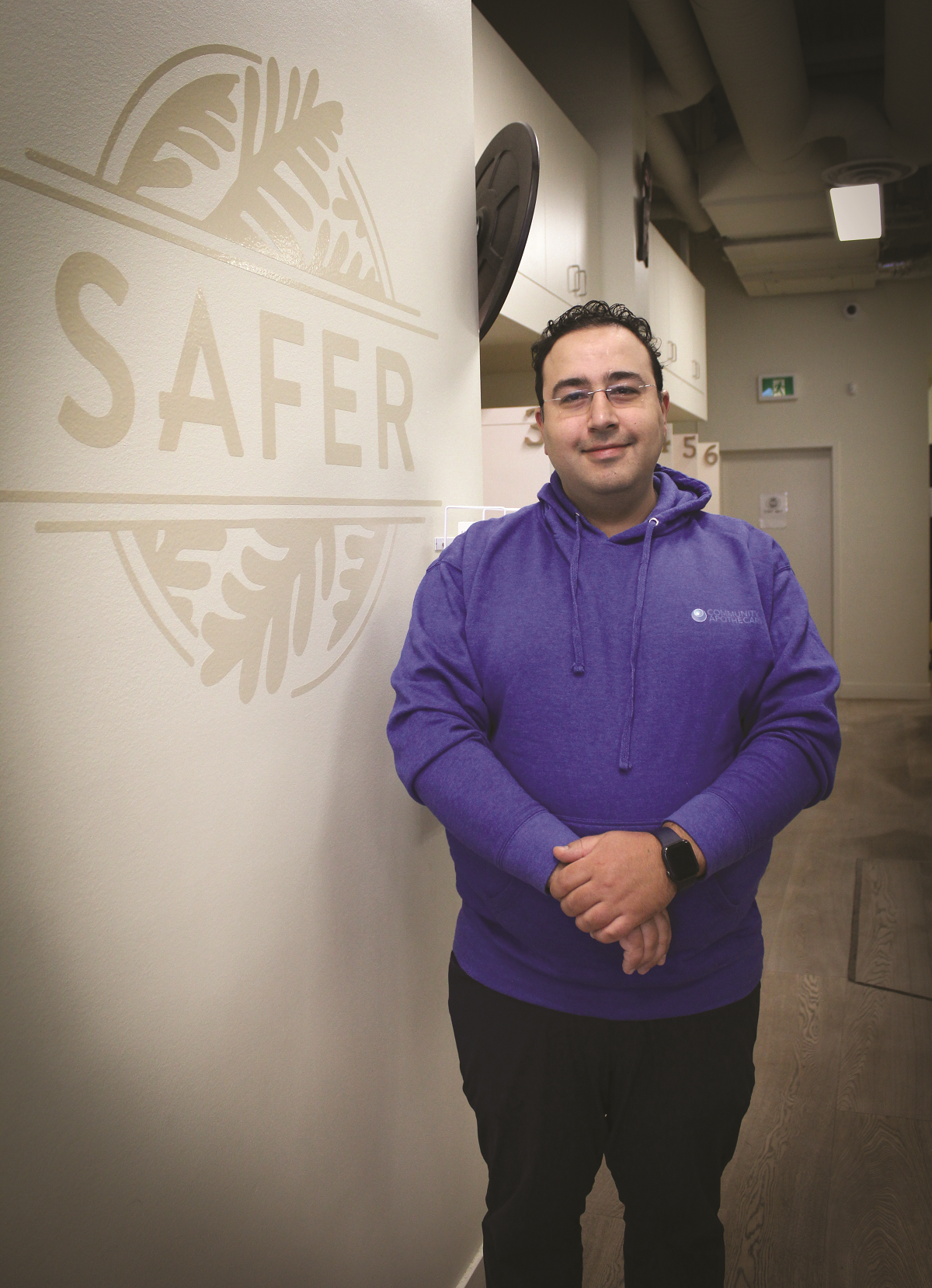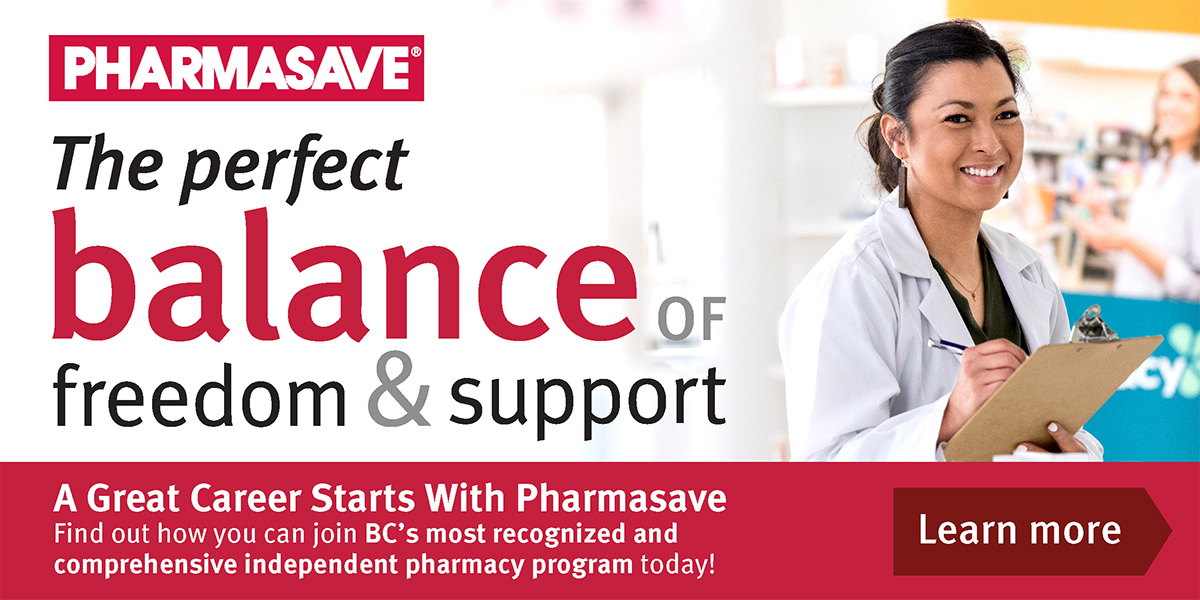By Angie Gaddy
Communications director, BCPhA
Pharmacist Ahmad Ghahary has always known he wanted to help the most marginalized and in need members of society. After seeing many types of pharmacy practice on rotations in Vancouver, Victoria, Toronto, Ottawa, Montreal, Newfoundland and New Brunswick, and graduating with a PharmD in 2011 from the University of Toronto, he returned to B.C. It was when he began working with PHS Community Services Society that he found his calling serving patients in mental health and addictions.
In 2014, Ghahary opened his Burnaby pharmacy Community Apothecary, which focuses on pharmacy outreach to patients where they live in the Downtown Eastside (DTES).

What does Community Apothecary do?
Ahmad:We are an outreach pharmacy, and our pharmacists and nurses travel to low-income, supported housing that provide holistic care with a focus on OAT within embedded health-care teams. We are also working on a project called SAFER (Safer Alternatives for Emergency Response) with Dr. Christy Sutherland, medical director for PHS.
What is this safer supply project?
Ahmad: This is a project with Dr. Sutherland that makes opioids available by prescription to qualifying patients with Opioid Use Disorder (OUD). We provide novel therapy options, such as fentanyl patches, Fentora (fentanyl sublingual tablets), and compounded formulations for patients who need a safer supply. These medications are dispensed and then witnessed under the supervision of a nurse.
The idea behind safer supply is that we recognize that if you have opioid use disorder and you need to use fentanyl, you don’t have many options. You can buy it from the illicit market, but then you’re beholden to their practices and you’re rolling the dice every time. We want to give people an alternative from the illicit market.
What drew you to create this type of pharmacy practice model?
Ahmad: Growing up I always admired folks that helped people who are marginalized and in need around the world. I wanted to look locally and meet the need within my own city and province. After graduating, I did get some exposure to serving patients in the DTES, and I loved it.
I'm passionate about this area, because I believe pharmacists can make a difference, and I know that there’s a proportion of people that are not interested in this type of work. So I feel a heightened responsibility to do what I do to meet the need.
For some that aren’t familiar with the idea of safer supply and the role of pharmacy, what would you tell them?
Ahmad: For some patients it might not be practical to stop using right away. One analogy I like to use is this:
With recovery (a great goal that we want more people to achieve) I think of it as wanting people to climb a mountain. And with recovery, we’re giving them the shoes, the hiking gear, water, food, tools, and a guide so they can get to the top of the mountain and go from there.
But with the situation right now with the illicit supply, people are basically in quicksand and there’s no option to get them out, because every day if they want to use then they have to take the risk of overdosing. People are succumbing to this quicksand at a rate of six overdose deaths per day in B.C. because the illicit supply is so unpredictable. This is why B.C. has been in a public health emergency for the past seven years.
We need to get patients onto solid footing, and then start building on that. Safer supply could be a way to achieve this and give people a way forward.
What would you tell pharmacists about providing prescribed safer supply?
Ahmad: It is a simple concept.
Safer supply means patients know the dose and know the ingredients of what they’re taking. From a pharmacy standpoint, that's all it is. As pharmacists we provide the known dose at the right time. That’s literally what we do.
So if we get over our stigmas and accept that some people are going to be using drugs, then we can start seeing people for people and understand their challenges. Then we can provide the empathy and care they so desperately need.

